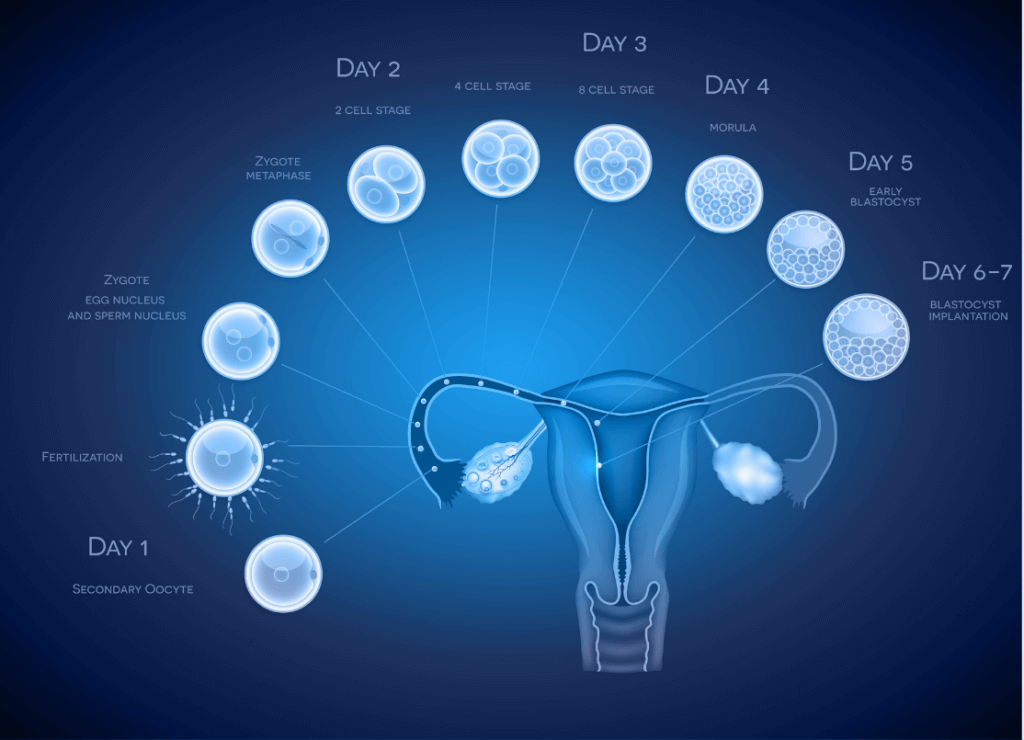
Embarking on the journey of In Vitro Fertilization (IVF) can be both exhilarating and challenging. As couples and individuals navigate the intricate world of assisted reproduction, one crucial milestone stands out—the embryo transfer. For intended parents undergoing IVF, the last procedure before your blood pregnancy test will be an embryo transfer. But what does an embryo transfer mean for you, and what are your options when it’s time for this long-awaited day?
In this comprehensive guide, we will unravel the intricacies of IVF embryo transfers, shedding light on the process and preparation that comes with it.
In vitro fertilization (IVF) is a groundbreaking fertility treatment that assists couples and individuals in achieving pregnancy when natural conception proves challenging. The process involves the collection of eggs, fertilization with sperm in a laboratory setting, and the subsequent cultivation of embryos.
Before the embryo transfer takes place, a crucial phase unfolds within the fertility clinic’s laboratory. High-quality embryos are meticulously cultivated and monitored for their development. This phase involves close observation of the embryos as they progress from fertilization to the blastocyst stage, ensuring only the healthiest and most viable candidates proceed to the transfer stage.
Once the embryologist identifies the optimal embryos, the fertility specialist and the patient embark on the next stage—preparation for the transfer. This involves synchronization with the woman’s menstrual cycle and sometimes the administration of hormonal medications to create an optimal environment for implantation.
On the day of the embryo transfer, anticipation and excitement fill the air. The procedure itself is relatively quick and minimally invasive. Using a thin catheter, the fertility specialist carefully places the selected embryos into the woman’s uterus. This delicate process requires precision and expertise to maximize the chances of successful implantation.
Following the embryo transfer, a period of patience and anticipation sets in—the infamous two-week wait. During this time, the woman refrains from activities that may impact the success of the implantation, and hormonal support is often continued to sustain the early stages of pregnancy.
At the end of the two-week wait, a pregnancy test determines the success of the IVF embryo transfer. A positive result is met with joy and relief, marking the beginning of a new chapter. However, the journey doesn’t end there; regular monitoring, support, and care continue throughout the pregnancy to ensure a healthy and successful outcome.
While the specific cause(s) of infertility may be unknown, your fertility clinic and reproductive endocrinologist will work with you to identify your source of infertility and how to best achieve a successful pregnancy.
Embryo transfers are an excellent option for intended parents who have:
At RPSD, we are strong advocates of a single embryo transfer for our IVF patients. We have found this process virtually eliminates the risk of giving birth to twins or triplets, which is a main complication of IVF.
When IVF results in a multiple pregnancy (with twins or triplets), there are increased risks of complications, including premature birth, low birth weight, or developmental delays. The mother is also at risk of heart problems, diabetes, hypertension, and preeclampsia. Dr. Garzo has made the case for a single embryo transfer to see safer pregnancies and healthier babies.
Additionally, thanks to the genetic testing we perform on the embryos, we are able to use single embryo transfers without affecting delivery rates. Read more about our success with a single embryo transfer in this recent press release:
Your fertility clinic will always offer you detailed instructions after appointments to make you feel comfortable and confident that you are taking care of yourself during the days leading up to the post-embryo transfer pregnancy test.
Some doctors recommend 24-hour bed rest post-procedure, while other sources recommend relying on low-impact movement to cause blood flow to the uterus with the hopes of increasing the chance of pregnancy. However, it’s crucial to avoid strenuous exercise, sex, or taking baths.
The IVF embryo transfer process is a testament to the intersection of science, hope, and determination. It is a journey that requires strength, resilience, and the unwavering belief in the possibility of creating life. As we navigate the complexities of assisted reproduction, the IVF embryo transfer stands as a beacon of hope, illuminating the path towards parenthood for countless individuals and couples around the world.
RPSD has a holistic approach to fertility services. We’re dedicated to helping you realize your dream of expanding your family. The compassionate physicians and caring staff at Reproductive Partners Fertility Center – San Diego (RPSD) deliver world-class care, personalized to you.
Our physicians and staff have been successfully treating patients for over 20 years. As pioneers in the elective transfer of a single embryo, we have built our practice around providing safe, successful treatments for patients looking to expand their families.
Our skilled fertility specialists are here to help. Contact us today and let’s discuss the next phase of your fertility journey.
Our skilled fertility specialists are here to help. Contact us today and let’s discuss the next phase of your fertility journey.